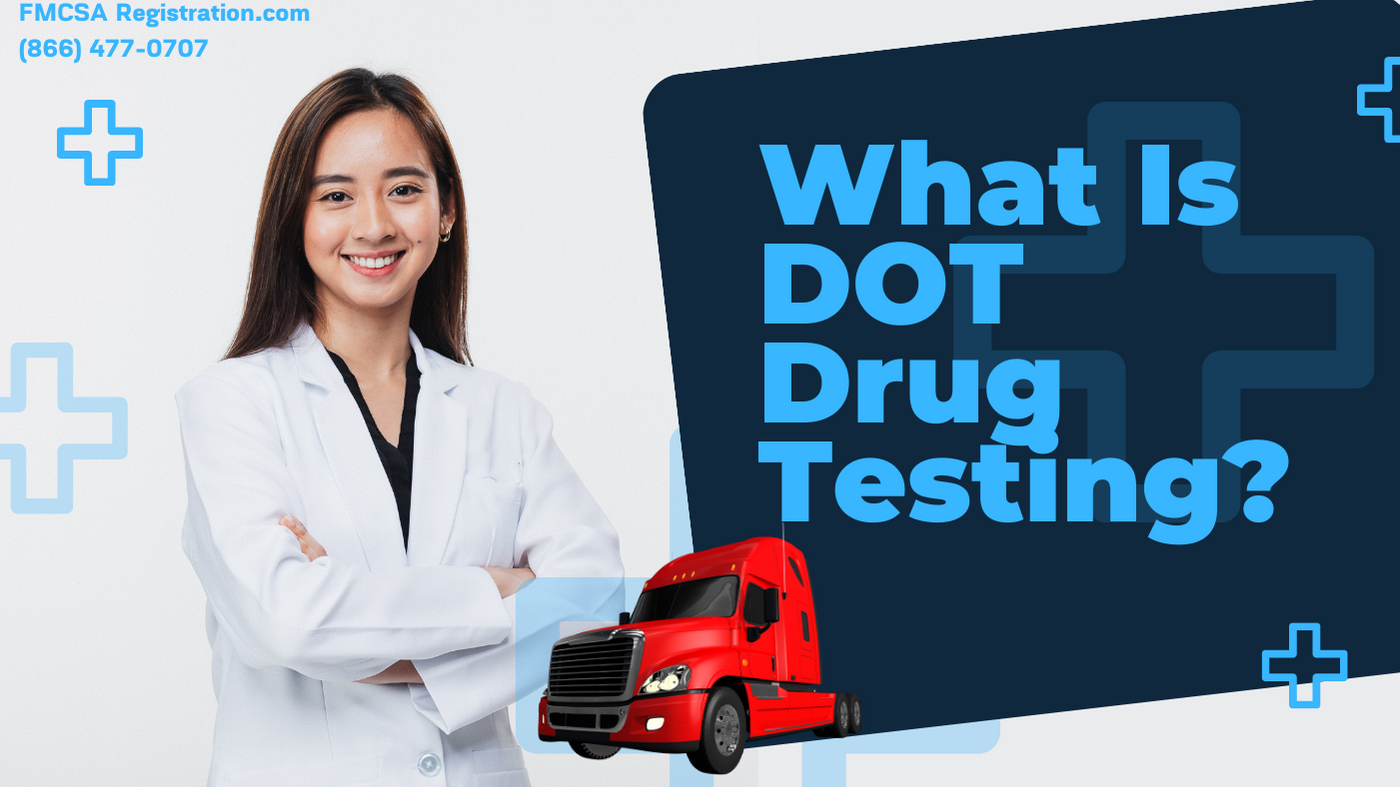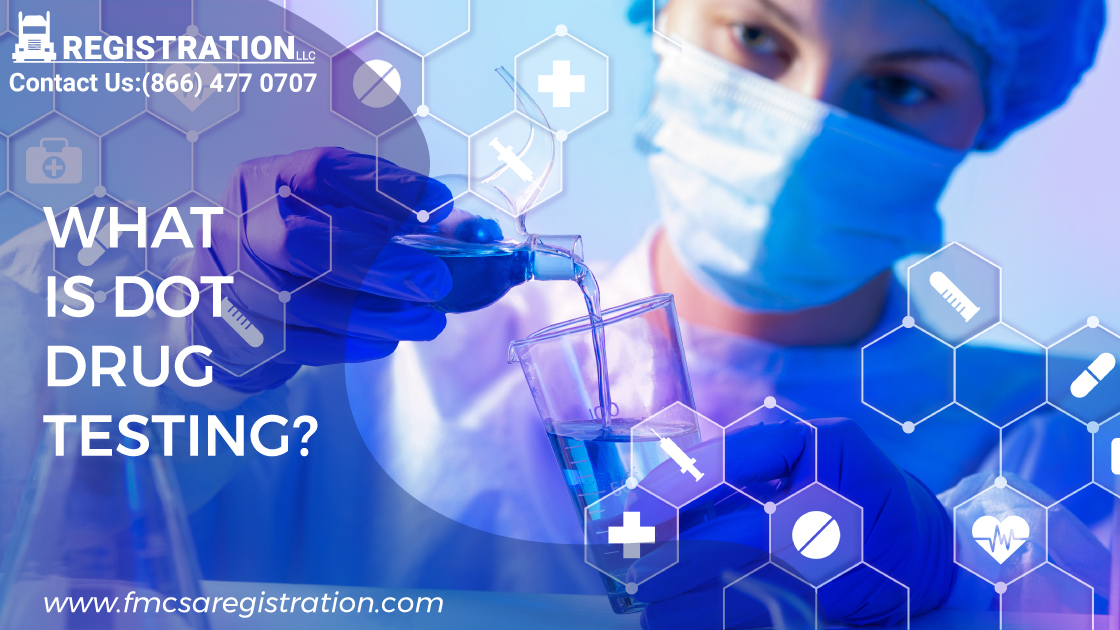
“What is DOT drug testing?” That's a common question that our company receives from customers. DOT drug testing is regulated by the U.S. Department of Transportation (DOT). It requires employers to test employees for drugs and alcohol before they can perform safety-sensitive functions, such as operating a commercial vehicle. The four DOT-required drug tests include pre-employment, random, reasonable suspicion/cause, and post-accident testing. These tests screen for marijuana, cocaine, opiates, amphetamines, and phencyclidine (PCP). Alcohol tests are also required in some cases. Employers must keep records of employee drug test results for up to five years. They must also assist employees with substance Abuse Problems. DOT drug testing helps ensure that drivers and other personnel who work in safety-sensitive environments will not cause harm to others.
Who Is Required To Take DOT Drug Tests?
All employers in the United States whom the Department of Transportation regulates must have their employees take drug tests. This includes those employed by interstate trucking companies, bus companies, aviation companies, and certain types of maritime shipping vessels. Additionally, employees of providers of public transportation services must also be tested for drugs and alcohol. Safety-sensitive positions such as aircraft operations and school bus drivers must submit to drug testing for DOT compliance. Employees who refuse to take or fail a DOT drug test cannot continue working in safety-sensitive positions that require DOT compliance. Employers must implement written policies outlining their approach toward these tests to remain compliant with federal regulations. Furthermore, they may also be subject to fines and penalties from the government. Also, take a look at the Drug and Alcohol Program policy. What is DOT Clearinghouse Enforcement?
What Substances Are Tested for in DOT Drug Tests?
The types of drugs that are tested for in DOT drug tests include amphetamines, cocaine, marijuana, opiates (codeine and morphine), and phencyclidine. Tests may also screen for alcohol by measuring the breath, blood, or urine concentrations. Some employers require testing for additional substances such as barbiturates, benzodiazepines, methadone, methaqualone, and propoxyphene. The type of drug test used depends on the regulations established by the US Department of Transportation (DOT). Read here about Starting a Trucking Company Correctly.
How Often Are DOT Drug Tests Performed?
Drug tests are performed randomly and regularly by the Department of Transportation (DOT). Random testing occurs at least once a year for all employees with Department of Transportation responsibilities, while regular drug testing is determined based on each employee's job function. Employees who test positive are immediately removed from safety-sensitive duties until they prove that a medical review officer (MRO) has cleared them to return to their designated role. In addition, employees must take part in alcohol or drug rehabilitation programs before returning to their positions. Depending on the situation, an employee may need to be tested multiple times throughout the year after a positive initial result to demonstrate sustained sobriety. It’s essential for everyone working in transportation-related roles to be aware of DOT testing policies. Visit the DOT Authority Package, which contains tips to prepare for 2023 DOT Week filings in minutes.
What Is the Process for DOT Drug Testing?
The process for DOT Drug Testing begins when a company is subject to the Department of Transportation’s drug and alcohol testing program. Employees may be asked to submit to random, pre-employment, post-accident, reasonable suspicion/for cause, and return-to-duty drug tests as required by the department. When an employee is selected for a trial, they will receive notification from their employer, usually in writing or another approved form of communication. The employee then has a set amount of time (usually about 32 hours) to report to the testing site. The employee must provide two specimens during the test: one urine sample and one hair sample. These samples are tested for commonly abused substances like marijuana, cocaine, heroin, and opioids. For additional programs, check out MCS-150, Must visit FMCSA Hours of Service Suspended topics.
What Happens If a DOT Drug Test Is Positive?
The employer must take immediate action if a DOT drug test is positive. The employee may be removed from safety-sensitive duties and could face disciplinary action, such as suspension or termination. In some cases, employees may also be required to enter into a substance abuse treatment program before they are allowed to return to their job positions. If the employee refuses to participate in treatment or fails to complete it successfully, they might risk losing their job permanently. Employers must comply with all DOT regulations regarding testing and responding to positive drug tests. Failure to do so can result in serious legal consequences for the company. Check out FMCSA Registration Trucking.

Can Employees Refuse To Take a DOT Drug Test?
Employees can refuse to take a Department of Transportation (DOT) drug test. However, this could lead to removal from their job and disqualification from future employment opportunities. Additionally, employers who are subject to DOT regulations must take action if an employee refuses to take the test - this may include suspension or termination of employment. Ultimately, refusing a DOT drug test could have severe consequences for those employed in regulated industries. All employees who may be asked to submit to a DOT drug test must understand their rights before making any decisions. Read about Texas DOT Numbers and USDOT Numbers. Learn here How to Prepare for a Compliance DOT Audit.
Are DOT Drug Tests Private and Confidential?
Yes, DOT drug tests are private and confidential. The Federal Drug Testing Custody and Control Form used to document the collection of a specimen for testing ensures that the privacy of the individual being tested is maintained throughout the process. All individuals involved in collecting, handling, or transporting a specimen for testing must always ensure its security. Additionally, all results from DOT drug tests are kept strictly confidential and can only be released with written consent from the person who was tested or as otherwise authorized by law. As such, any information about an individual's drug test results remains secure and protected. It is important to remember that DOT-regulated employers must protect their employee's right to privacy when it comes to conducting these tests. Check out The Basics of Farm Exemptions. You will then be able to maintain complete motor carrier authority or broker.
How Accurate Are DOT Drug Tests?
Drug tests administered by the Department of Transportation (DOT) are highly accurate. DOT drug testing is usually done with a form of urinalysis, which detects the presence of specific drugs in a person's system. This type of testing is especially effective for detecting most illegal substances and prescription medications that could impair driving performance. Urine tests provide results almost immediately, making them an efficient way to confirm or deny a driver's use of prohibited substances. The DOT urine tests can detect traces of drugs anywhere from several days to several weeks after use, depending on the amount taken and how often it was used. If a substance is detected, the sample will be sent to a laboratory for further testing to identify the drug in question accurately. You will need driver qualification files filed out by all employees who drive for you working. How Can I Pass My DOT Drug Test?
One of the best ways to pass a DOT drug test is to abstain from drugs before and during the testing period. The DOT (US Department of Transportation) requires employers to administer pre-employment, random, reasonable cause, post-accident, and return-to-duty drug tests as part of their safety protocols. By avoiding any kind of illegal drug use, you can ensure that you will pass your DOT drug test. In addition to refraining from using drugs, staying hydrated before the test is essential, and this can be done by drinking lots of water. This will help flush out any toxins in your system that could be detected in the trial. You should also avoid high-energy drinks or foods with diuretics, such as coffee. How to Prepare for a Compliance DOT Audit, The Complete DOT Audit Checklist.
Can Prescription Medications Cause a Positive Result on a DOT Drug Test?
Yes, prescription medications can cause a positive result on a DOT (Department of Transportation) drug test. Many common pills contain substances that are included in the standard five-panel drug tests conducted for DOT compliance. These substances include amphetamines, opioids, cannabinoids, and phencyclidine (PCP). If someone has been prescribed one of these medications by a doctor and is taking it as directed, they could still test positive during their DOT drug test. It is essential to inform the testing administrator of any medication you may be taking so that they can review your records before conducting the test. Additionally, some employers may provide accommodations for employees who need to take certain medications for medical reasons that might otherwise appear as false positives on their drug screens. Also, take a look at what IRP or Apportioned Registration is.
How Do I Find a Local DOT Drug Test?
If you are looking for a drug test in your local area, searching online is the best place to start. Depending on where you live, you may be able to find a DOT-certified drug testing facility near you. You can also search for mobile drug testing companies that offer onsite services. Make sure that any agency or lab you choose is approved and certified. Visit BOC-3 Filing. This will ensure that they follow all regulations set forth by the Department of Transportation (DOT). Their results will be accepted by employers and other organizations seeking drug testing services. Before making an appointment, ask about the type of tests offered and their cost. Once you have found a reliable source for drug testing, be sure to bring valid identification with you. Check out When to Update Your MCS-150.
Summary of DOT Drug Testing
Keep the following points about DOT drug testing in mind. This information can help you and your carrier maintain DOT and FMCSA compliance. If you have questions, do not hesitate to contact our organization. DOT drug tests screen for marijuana, cocaine, opiates, amphetamines, and phencyclidine (PCP). The DOT sometimes requires alcohol tests. All transportation companies regulated by the DOT must provide DOT drug testing resources. They are refusing to take a DOT drug test, which counts as failing it. Prescription medications can sometimes cause a positive result to appear on a test. DOT urine tests can recognize drugs and substances that were ingested weeks ago. The results of DOT drug tests are kept confidential.